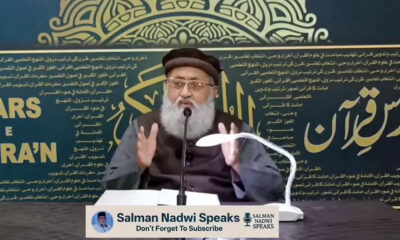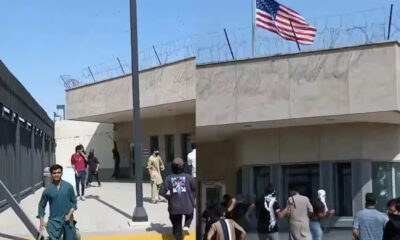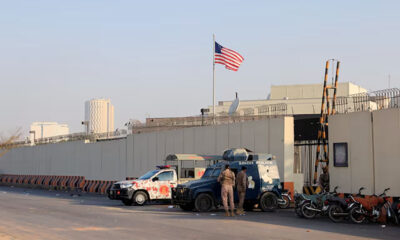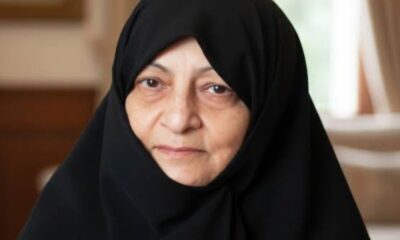Latest News
Top Al-Qaeda leader killed in Farah: NDS
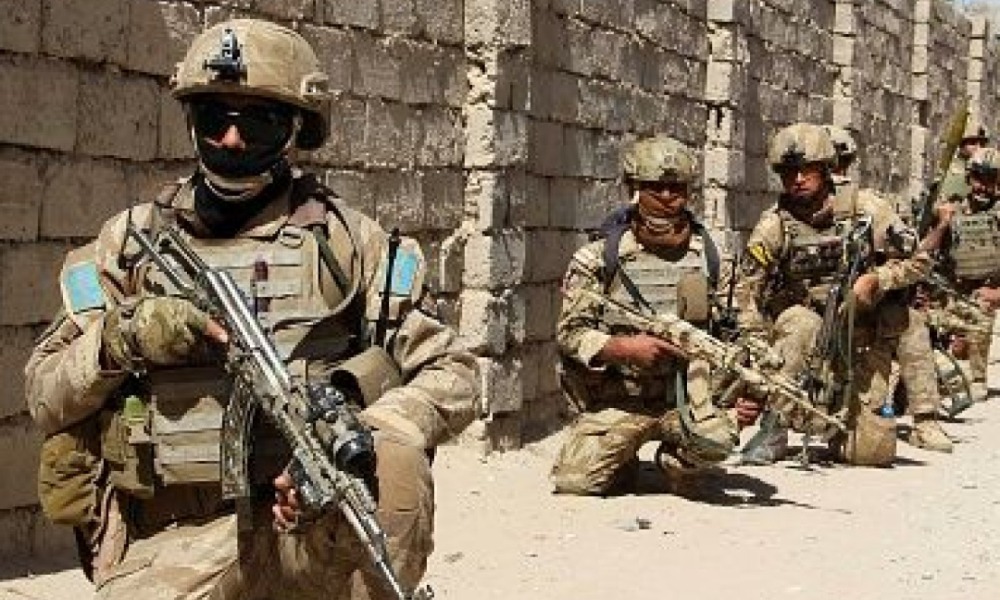
Mohammad Hanif Alias Abdullah leader of Al-Qaeda for the Indian Sub-continent was killed by the National Directorate of Security (NDS) Special Forces in an operation in the Bakwa district of Farah province, said Tuesday in a statement.
According to the statement, Hanif, a Pakistani national and a very close aide to Asim Omer, was given shelter and protection by the Taliban.
He also was deputy so-called Amir for AQIS for a period, the statement noted.
“This person had a membership of the Taliban group and after 2010 he also became a member of the al-Qaeda network. In the same year, he entered Helmand with the direct cooperation of the Taliban, and then with the help of the Taliban he was moved to Farah province,” NDS statement said.
The statement further indicated that Hanif also had close ties with the Taliban and assisted and trained the Taliban members in explosives, car bombs, and improvised explosive devices.
The Taliban, however, did not comment yet.
The latest development comes as last month, the NDS forces had killed an al-Qaeda key member for the Indian sub-continent, Abu Muhsen al-Masri in an operation in Ghazni province.
Al-Masri, an Egyptian national was believed to be the “second-in-command” in al-Qaeda and had been on the US’s Federal Bureau of Investigation’s (FBI) Most Wanted Terrorist list.
Meanwhile, a UN official previously had claimed that despite the Taliban’s pledge in February to cut ties with al-Qaeda, the group is still “heavily embedded” within the Taliban in Afghanistan.
Speaking to the BBC, Edmund Fitton-Brown, co-ordinator of the UN’s Islamic State, al-Qaeda and Taliban Monitoring Team, said there has been regular communication between the two groups despite the US-Taliban agreement signed in Doha in February.
“The Taliban were talking regularly and at a high level with al-Qaeda and reassuring them that they would honor their historic ties,” Fitton-Brown said.
According to him, the relationship between al-Qaeda and the Taliban was “not substantively” changed by the deal struck with the US.
“Al-Qaeda is heavily embedded with the Taliban and they do a good deal of military action and training activities with the Taliban, and that has not changed,” he said.
BBC reported that although al-Qaeda’s strength and ability to strike the West has significantly diminished over the past decade, its leader Ayman al-Zawahiri is believed to still be based in Afghanistan along with a number of other senior figures in the group.
But, Fitton-Brown said despite its lower profile, al-Qaeda remained “resilient” and “dangerous”.
Earlier to that UN in a report states that the Taliban has failed to fulfill one of the core parts of the US-Taliban agreement, namely that it would break ties with al-Qaeda. The agreement was signed in February in Doha, Qatar, after months of negotiations.
Al-Qaeda has 400 to 600 operatives active in 12 Afghan provinces and is running training camps in the east of the country, according to the report.
The Afghan government has also previously spoken of the Taliban’s close ties to ISIS and other terrorist groups, including al-Qaeda.
Latest News
Indian cleric comments on rising Afghanistan–Pakistan tensions
Concluding his remarks, Nadwi called on Muslims to carefully assess the situation and to take what he described as a principled stand against injustice and external influence.
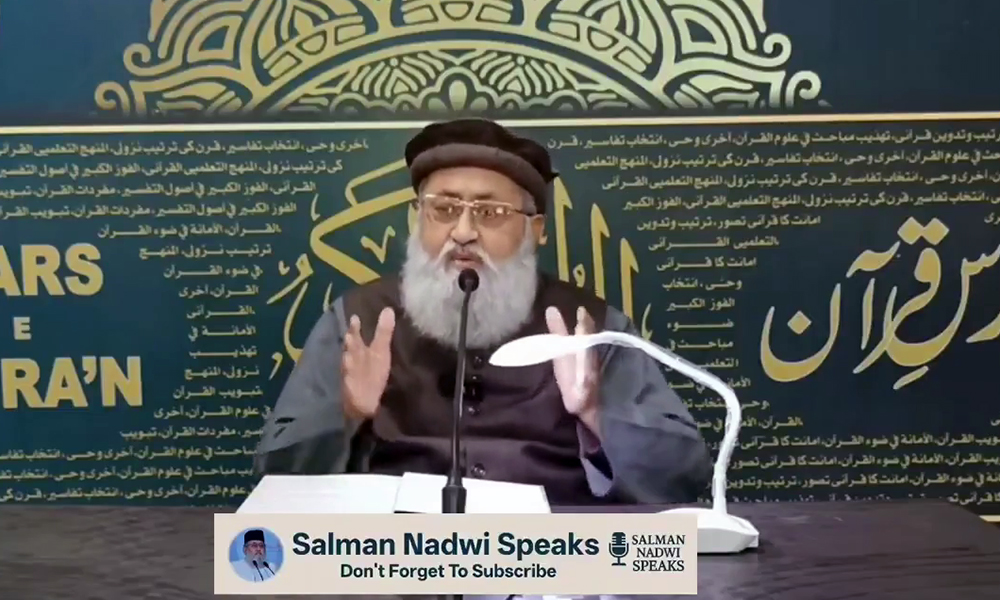
Prominent Indian Islamic scholar Salman Nadwi has weighed in on the recent tensions and clashes between Afghanistan and Pakistan, releasing a 13-minute video statement outlining his views on the unfolding political and military developments.
In the video, published on his official YouTube channel, Nadwi criticized Pakistan’s current military establishment, describing it as “oppressive” and “unjust.”
He alleged that the country’s armed forces prioritize foreign interests over the welfare of their own population.
Addressing the situation in Afghanistan, Nadwi said the country’s authorities are acting to defend their territory and governance system.
He characterized resistance to what he termed “military aggression” as legitimate from his perspective.
The cleric also questioned the positions taken by several Pakistani religious scholars and political figures, urging them to reconsider their stance on the escalating tensions.
He expressed disappointment over what he described as silence or insufficient responses from some influential voices within Pakistan.
Concluding his remarks, Nadwi called on Muslims to carefully assess the situation and to take what he described as a principled stand against injustice and external influence.
His comments come at a time of heightened friction between Afghanistan and Pakistan.
International Sports
AFC postpones Champions League matches amid escalating Middle East tensions

The Asian Football Confederation (AFC) has announced the postponement of several major club fixtures in its West Region competitions due to the rapidly deteriorating security situation in the Middle East.
In a statement released Monday, the AFC confirmed that the AFC Champions League Elite 2025/26 Round of 16 first-leg matches in the West Region — originally scheduled for Monday, March 2, and Tuesday, March 3 — will be rescheduled.
The decision affects top clubs from countries including Saudi Arabia, Iran, Qatar, the United Arab Emirates, Iraq, and Uzbekistan, many of whom were preparing for high-stakes knockout ties.
The postponements also extend to the AFC Champions League Two 2025/26 and the AFC Challenge League 2025/26, where West Region quarter-final first-leg matches set to take place between March 3 and 4 have been delayed until further notice.
These competitions feature emerging and mid-tier clubs from across West and Central Asia, for whom continental progression carries significant financial and sporting importance.
The move comes amid escalating military tensions across parts of the Middle East, with airstrikes and cross-border hostilities raising concerns about travel safety, airspace closures, and the security of players and supporters.
Several countries in the region have experienced heightened alert levels, leading to logistical complications for international sporting events.
Clubs from nations directly or indirectly affected by the conflict — including teams from Iran, Saudi Arabia, Qatar, and the United Arab Emirates — now face uncertainty over revised travel plans, fixture congestion, and potential impacts on domestic league schedules.
However, the AFC confirmed that matches involving clubs from the East Region — including sides from Japan, South Korea, China, Thailand, Australia, and other East and Southeast Asian nations — will proceed as originally scheduled across all AFC club competitions.
“The AFC will continue to closely monitor this rapidly evolving situation and remains resolute in ensuring the safety and security of all players, teams, officials, and fans,” the governing body said in its statement.
The postponements underscore how escalating geopolitical tensions are now reverberating beyond politics and security, disrupting one of Asia’s premier sporting competitions and affecting clubs, supporters, and broadcasters across the continent.
Latest News
Bayat Foundation assists needy families in Kabul amid ongoing humanitarian crisis
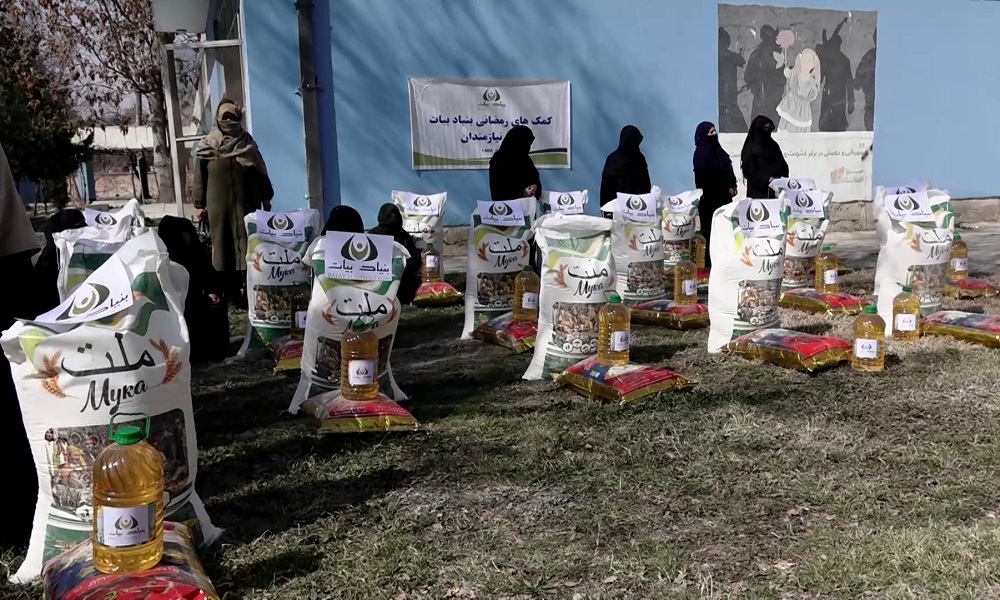
As Afghanistan continues to grapple with a severe humanitarian crisis compounded by economic hardship and heightened military tensions in the region, the Bayat Foundation has stepped up efforts to support vulnerable families in Kabul through its annual Ramadan assistance program.
This week, the foundation distributed food packages to dozens of struggling households in Kabul’s District 18. The packages include essential staples such as rice, flour, and cooking oil — basic necessities that many families are increasingly unable to afford amid high levels of unemployment, reduced incomes, and rising living costs.
Afghanistan remains one of the world’s most fragile humanitarian settings. Years of conflict, recurring natural disasters, economic isolation, and widespread poverty have left millions dependent on aid.
According to humanitarian agencies, a significant portion of the population faces food insecurity, with many families forced to skip meals or rely on limited assistance to survive. The situation has been further strained by recent regional tensions, which have disrupted trade routes and deepened economic uncertainty.
Speaking during the distribution, Haji Mohammad Esmail, Deputy Director of the Bayat Foundation, emphasized the organization’s ongoing commitment to assisting those in need.
“Continuing our annual Ramadan assistance [campaign], we are once again distributing aid this year. Today, we are in Kabul’s 18th district, providing food packages — including flour, oil, and rice — to a number of eligible families whose list was prepared by our team. Our assistance will continue both in Kabul and other provinces.”
For many recipients, the support offers not just food, but a measure of stability during an otherwise precarious time.
“I have no breadwinner at home; I am the one providing for my family. We are seven members,” said one woman receiving assistance. “Thank you — may God help you for assisting us poor people.”
Founded by Afghan businessman and philanthropist Dr Ehsanullah Bayat, the Bayat Foundation has been active in humanitarian and development work across Afghanistan for years. In addition to its annual Ramadan food drives, the organization has supported communities affected by earthquakes, floods, and harsh winters, provided healthcare initiatives, and contributed to educational and infrastructure projects in underserved areas.
As the holy month of Ramadan continues, the foundation says distributions will expand to other districts of Kabul and additional provinces, aiming to reach as many vulnerable families as possible during a period traditionally marked by charity, solidarity, and compassion.
-

 Latest News3 days ago
Latest News3 days agoPakistani military jet downed in Afghanistan’s Jalalabad, pilot captured alive
-

 Latest News4 days ago
Latest News4 days agoAfghan Air Force conducts airstrikes in Islamabad, other cities
-
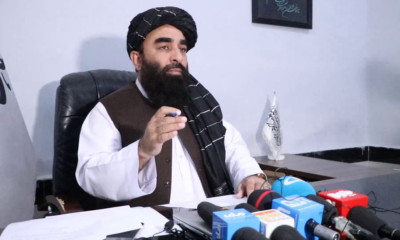
 Latest News4 days ago
Latest News4 days agoIEA: Special circle in Pakistan has launched mission to destabilize region
-
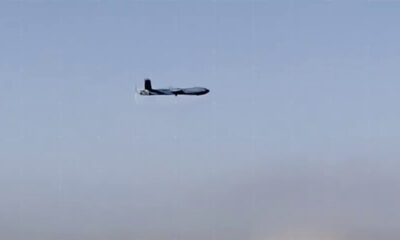
 Latest News1 day ago
Latest News1 day agoAfghan air force strikes key Pakistani military installations in retaliatory operation
-
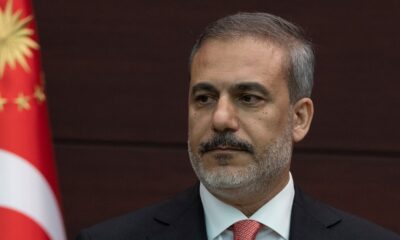
 Latest News4 days ago
Latest News4 days agoTurkey launches initiative to diffuse Afghanistan-Pakistan tension
-

 Regional5 days ago
Regional5 days agoNarendra Modi holds high-level talks after historic address to Knesset
-

 Latest News4 days ago
Latest News4 days agoAfghans say they are united against Pakistan aggression
-
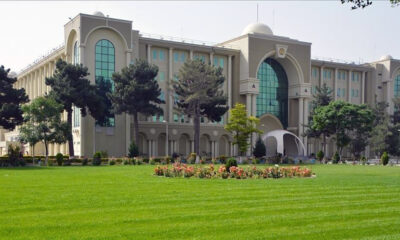
 Latest News3 days ago
Latest News3 days agoAfghan forces conduct fresh airstrikes on Pakistani military targets


